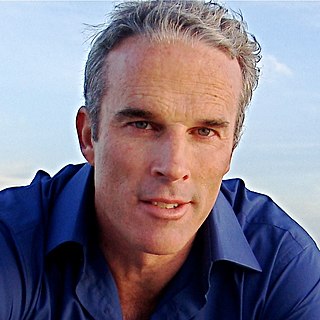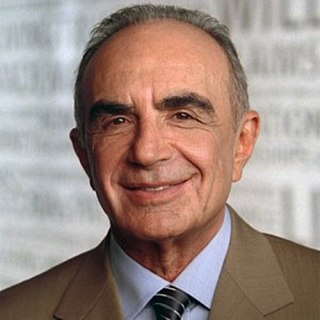A Quote by Carl Sagan
We've begun at last to wonder about our origins, star stuff contemplating the stars, organized collections of ten billion billion billion atoms contemplating the evolution of matter, tracing that long path by which it arrived at consciousness here on the planet Earth and perhaps throughout the cosmos. Our obligation to survive and flourish is owed not just to ourselves but also to that cosmos, ancient and vast, from which we spring.
Quote Topics
About
Also
Ancient
Arrived
Atoms
Begun
Billion
Collections
Consciousness
Contemplating
Cosmos
Earth
Evolution
Flourish
Just
Last
Long
Matter
Obligation
Organized
Origins
Our
Ourselves
Owed
Path
Perhaps
Planet
Planet Earth
Spring
Star
Stars
Stuff
Survive
Ten
Throughout
To Survive
Tracing
Vast
Which
Wonder
Related Quotes
I never said it. Honest. Oh, I said there are maybe 100 billion galaxies and 10 billion trillion stars. It's hard to talk about the Cosmos without using big numbers. I said "billion" many times on the Cosmos television series, which was seen by a great many people. But I never said "billions and billions." For one thing, it's too imprecise. How many billions are "billions and billions"? A few billion? Twenty billion? A hundred billion? "Billions and billions" is pretty vague. When we reconfigured and updated the series, I checked-and sure enough, I never said it.
We on Earth have just awakened to the great oceans of space and time from which we have emerged. We are the legacy of 15 billion years of cosmic evolution. We have a choice: We can enhance life and come to know the universe that made us, or we can squander our 15 billion-year heritage in meaningless self-destruction. What happens in the first second of the next cosmic year depends on what we do, here and now, with our intelligence and our knowledge of the cosmos.
This earth is one of the rare spots in the cosmos where mind has flowered. Man is a product of nearly three billion years of evolution, in whose person the evolutionary process has at last become conscious of itself and its possibilities. Whether he likes it or not, he is responsible for the whole further evolution of our planet.
Stars die and reborn […] They get so hot that the nuclei of the atoms fuse together deep within them to make the oxygen we breathe, the carbon in our muscles, the calcium in our bones, the iron in our blood. All was cooked in the fiery hearts of long vanished stars. … The cosmos is also within us. We're made of star stuff. We are a way for the cosmos to know itself.
If we could magically transport ourselves back to the young Earth, when it was only a billion years old or two billion years old or three billion years old or four billion years old, we wouldn't be able to survive. We would have a hard time surviving if we were transported to the time when dinosaurs were around.
The planet earth has a life span of eight billion years, give or take a few million. People have been around for approximately forty thousand years-a virtual blink in the cosmos. It is sad that we as a species are ravaging the natural world so fast that we are jeopardizing our survival. If we wipe ourselves out, it would be the height of folly, but the earth will survive even us. It will eventually restore itself. It might take a few thousand years, and it won't be just as it was before, but its life is stronger than death.
We have come to look at our planet as a resource for our species, which is funny when you think that the planet has been around for about five billion years, and Homo sapiens for perhaps one hundred thousand. We have acquired an arrogance about ourselves that I find frightening. We have come to feel that we are so far apart from the rest of nature that we have but to command.
Our planet has been around only for four and a half billion years. Let's imagine a planet that has life on it such as life is on Earth and it's seven billion years old. Let's say that planet evolved intelligence. Well, that intelligence would be way more advanced than what we call intelligence here on Earth. How long has intelligence been around on Earth as we've come to define it?




























